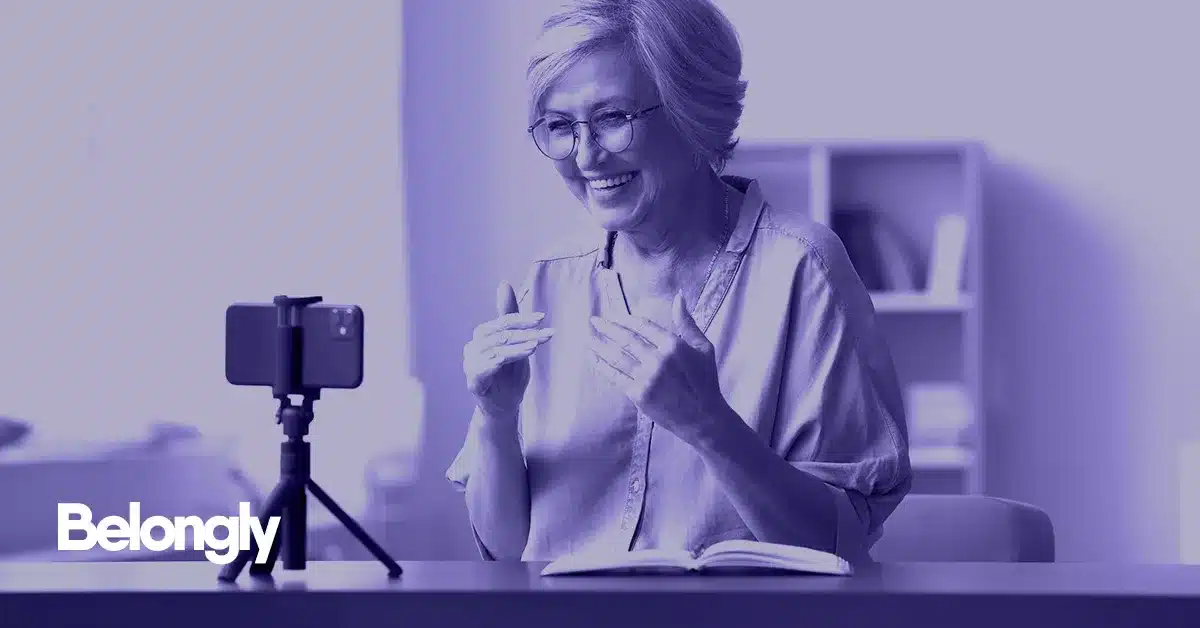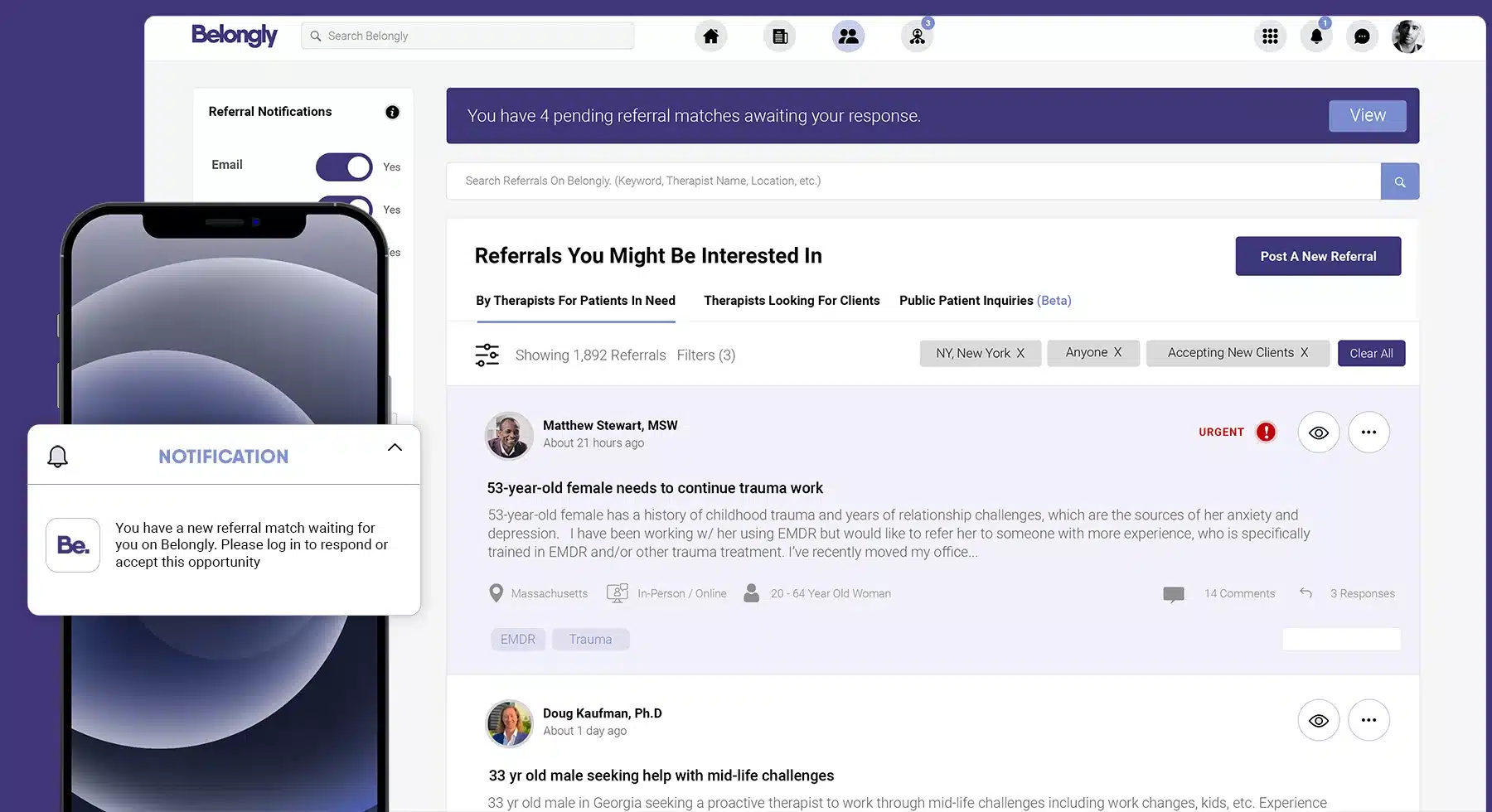Prior to September 2021, Jeff Guenther was a therapist like any other. He had a private practice in Portland, Oregon, and ran an online directory to help patients connect with therapists in different metropolitan areas.
Eighteen months into the COVID pandemic, Jeff noticed that mental health topics were trending on social media and decided to start a TikTok account. After striking out with his first three posts, he created a video titled “5 questions you should ask your therapist right now.” The post went viral, and @TherapyJeff was born.
Today, Jeff is one of many influencers using social media to shape conversations about mental health. The rise of mental health influencers has coincided with another social media trend: people looking to TikTok and similar sites for mental health support, information, and even self-diagnosis.
Critics point to social media’s tendency to overgeneralize and spread misinformation, but influencers see it as a tool for reducing stigma, increasing awareness, and connecting people with more formalized help. In fact, these influencers have become so powerful that Harvard’s School for Public Health recently partnered with them to create more evidence-based mental health content.
Here are 4 therapist influencers who are making an impact:
Dr. Julie Smith (@drjuliesmith)
Dr. Julie Smith is a clinical psychologist based in the United Kingdom. She started using TikTok in 2019 to share practical and accessible mental health advice. She now has more than 4 million followers and a bestselling book titled Why Has Nobody Told Me This Before? She prides herself on providing evidence-based self-help strategies for people dealing with “normal human feelings” like grief and anxiety. As she writes on her website, “I want to make top quality mental health education accessible online. This means that even those who cannot access therapy can get off to the best start in their recovery journey.”
Jeff Guenther (@TherapyJeff)
Jeff is a licensed professional counselor in Portland, Oregon who helps individuals and couples build healthy relationships. His honest, relatable, and humorous posts have gained him over 2 million followers and enabled him to share information about break-ups, attachment styles, and more. Jeff specifies that his posts are meant to provide general guidance as opposed to personalized advice. Still, he hopes he can provide people with access to mental health information that they might not get otherwise. As he states in an interview with People Magazine, “For most of my career, there was this gatekeeping thing about therapy where you could see a therapist if you had insurance, if you had a lot of money, if you had a lot of therapists in your city. You had to be privileged in a few different ways in order to access therapy and get this interesting insight. Of course, [social media] is different than individualized therapy, but it still gives more access.”
Dr. Justin Puder (@amoderntherapist)
Dr. Justin Puder, or “Dr. J” as he is known on Instagram, is serious about combatting mental health stigma. He is open about his own mental health struggles and admits that even as a clinical psychologist, he does not have all the answers. “I see myself as a fellow traveler on this journey of life, he writes on his website, “Although it’s not always easy, I believe in the power of vulnerability and sharing my story with you.” Like Jeff Guenther, Dr. J uses humor to make his videos more relatable and accessible. He even pokes fun at himself, dramatizing the differences between “1st year therapist” and “10-year therapist” to illustrate the power of negative self-talk. Dr. J also hosts two podcasts, “Welcome to Group Therapy,” and “Drop In With Dr. J.”
Dr. Joy Harden Bradford (@therapyforblackgirls)
Atlanta-based psychologist “Dr. Joy” wants to engage Black women in the mental health conversation. After recognizing that stigma was preventing many Black women from seeking therapy, Dr. Joy created the website therapyforblackgirls.com. The platform now includes a blog, award-winning podcast, and therapist directory. Dr. Joy uses pop culture, quotes, and graphics to make psychology more relevant to her followers, with a focus on wellness, not pathology. As she states in an interview with HuffPost, “A lot of times when we talk about mental illness or mental health, I think there’s a lot missing from the conversation. I don’t think we always do a great job focusing on mental wellness, and realizing that we all have mental health we have to take care of.”
The Ethics of Influencing
The above influencers have successfully used social media to inform, engage, and inspire their followers. However, because platforms like TikTok can blur professional boundaries, these therapists have to be constantly vigilant not to violate confidentiality or other ethical codes. For this reason, many influencers have a social media policy that specifies that patients are not allowed to follow or friend them. However, this is hard to enforce in an environment of avatars and nondescript user names. Moreover, even if patients don’t follow their therapists on social media, they can still access their posts if their profiles are public.
Last March, the Washington Post published an article titled, “Your Therapist is on TikTok. Will Your Therapy Session End Up There Too?” While that might be journalistic hyperbole, it does point to a potential fear for patients with influencer therapists: Are my sessions being used as inspiration for social media? Does my therapist really want to help me or are they just looking for content for their followers?
Keep Reading
Want more? Here are some other blog posts you might be interested in.










